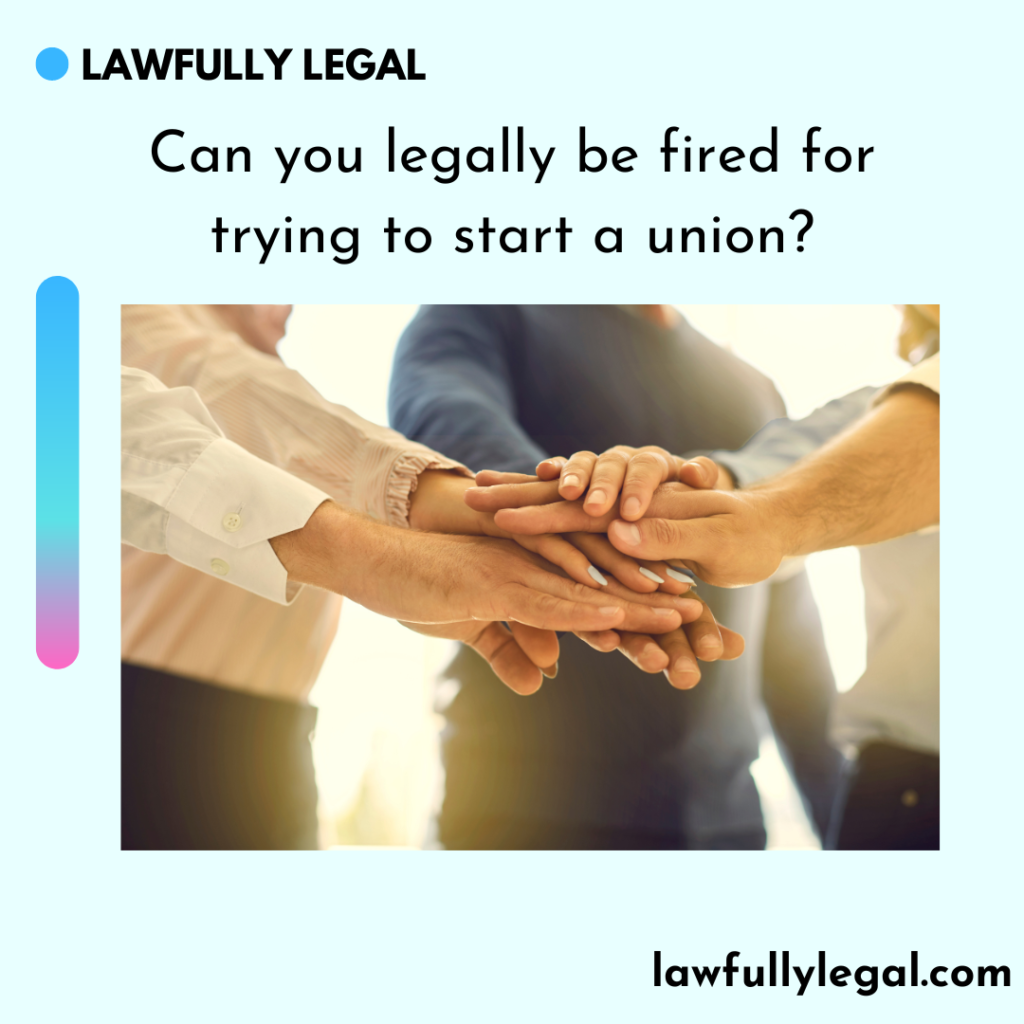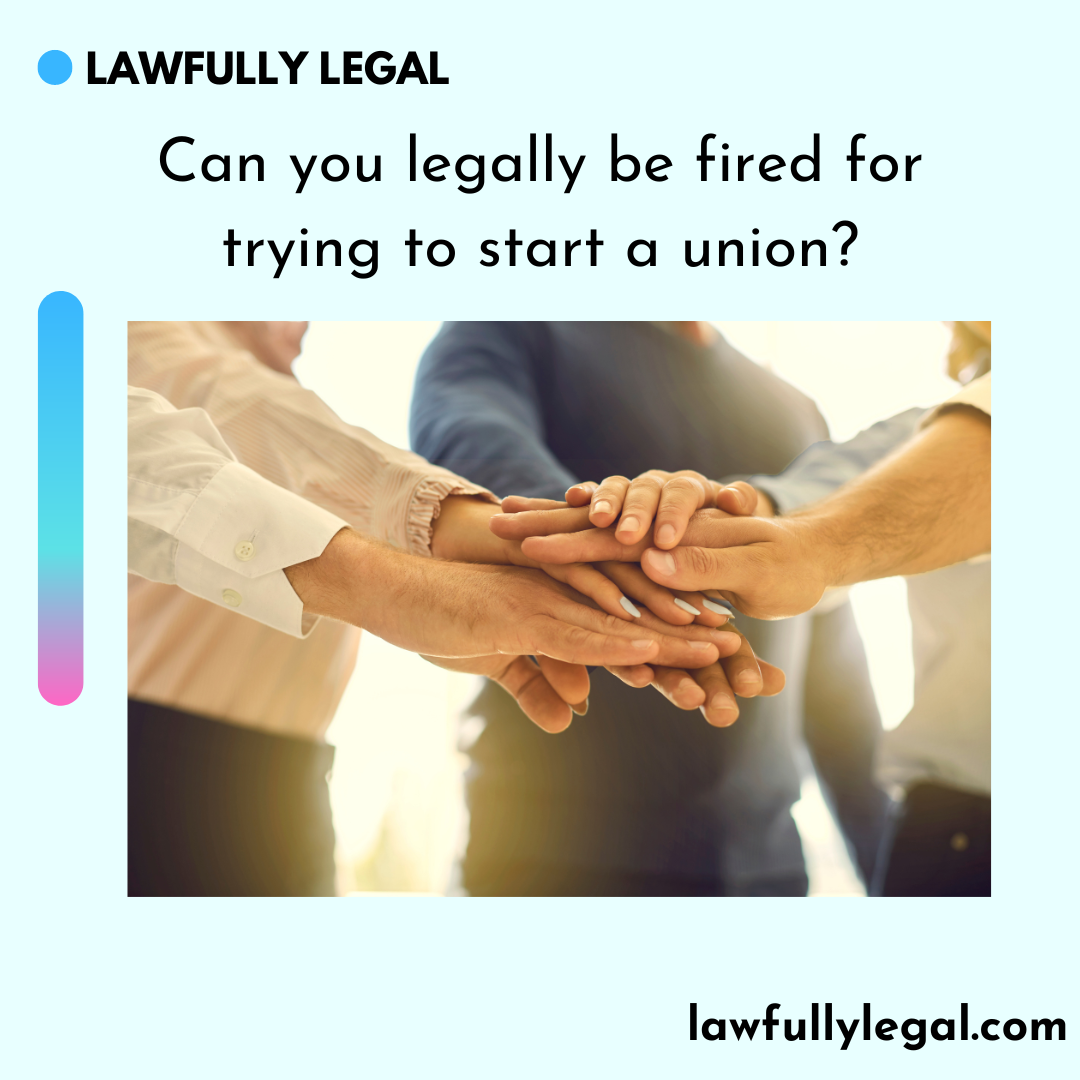
In many countries, including the United States, employees have the right to organize and join labor unions to advocate for better working conditions, fair wages, and improved benefits. However, concerns about job security often arise when employees attempt to form or join unions. The fundamental question is: can you legally be fired for trying to start a union? Let’s explore the answer to this important question.
1. Legal Protections:
In the United States, labor laws provide significant protections to employees who seek to organize or join unions. The primary legal safeguard is the National Labor Relations Act (NLRA), which grants employees the right to engage in “concerted activities” for the purpose of collective bargaining or other mutual aid or protection. Forming, joining, or assisting a labor union is considered a concerted activity protected by the NLRA.
2. Protected Activities:
Employees are protected when they engage in activities such as discussing unionization with colleagues, distributing union literature, attending union meetings, and signing union authorization cards. These actions are protected under the NLRA, and employers are prohibited from interfering with or restraining such activities.
3. Unlawful Firings:
Under the NLRA, it is unlawful for an employer to terminate an employee solely because they are involved in union-related activities. If an employee is fired for trying to start or join a union, it can be considered an unfair labor practice, and the employee may have legal recourse.
4. Retaliation Prohibited:
In addition to protection from termination, employees engaging in union activities are also safeguarded against retaliation. This means that employers cannot take adverse actions, such as demotions, pay cuts, or reassignments, in response to an employee’s union involvement.
5. Process of Unionization:
When employees express interest in forming a union, there is a formal process that typically involves obtaining support from a significant percentage of the workforce, followed by an election conducted by the National Labor Relations Board (NLRB). The NLRB oversees and enforces employees’ rights to form, join, or assist labor organizations.
6. Employer Restrictions:
While employers are generally prohibited from interfering with unionization efforts, they are allowed to communicate their own views on unionization as long as it doesn’t involve threats, intimidation, or coercion.
7. Consultation with Legal Counsel:
If you believe you were terminated or faced adverse actions because of your involvement in union activities, it is advisable to consult with an attorney experienced in labor and employment law. They can help you assess the circumstances of your case and determine whether your rights have been violated.
In conclusion, you generally cannot be legally fired solely for trying to start a union or engaging in union-related activities in countries like the United States. The NLRA provides important protections for employees to freely express their desire to organize or join a union without fear of retaliation. However, it’s crucial to be aware of your rights, the legal process for unionization, and consult with legal professionals if you believe your rights have been infringed upon. Unionization is a fundamental aspect of labor rights, and employees have the right to advocate for their interests collectively without the fear of losing their jobs.










Leave a Reply
View Comments